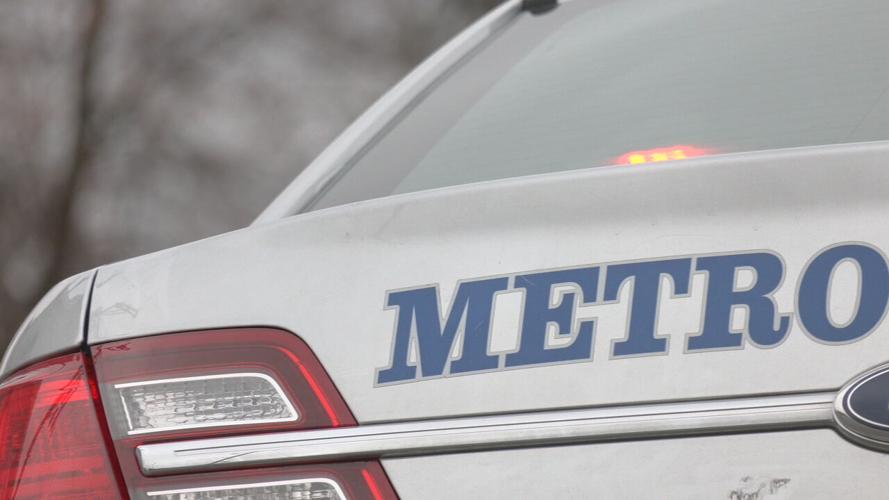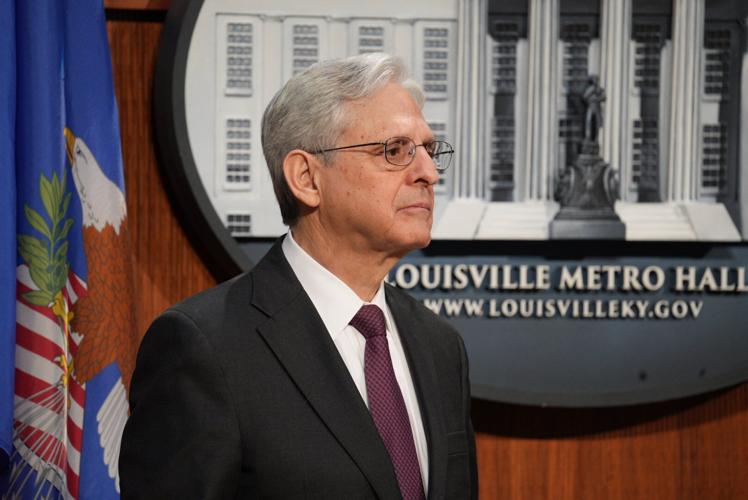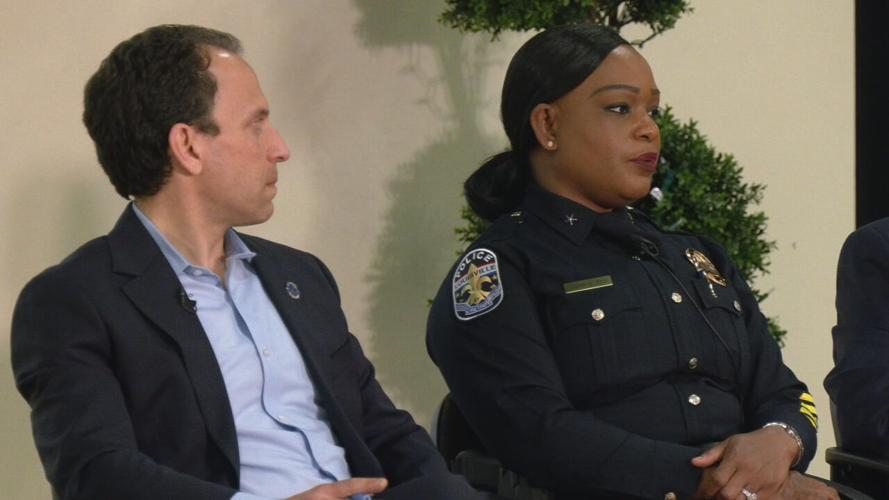LOUISVILLE, Ky. (WDRB) -- The process to reverse bad policing practices in Louisville began one year ago Friday when the U.S. Department of Justice came to Louisville and released a scathing report with its findings from an investigation into the city's police department that lasted several years.
In the report, the DOJ said they believe the Louisville Metro Police Department and Metro Government engaged in practices that violated the U.S. Constitution and federal law for years, including excessive use of force and searches based on invalid search warrants.
Work has been done over the last year, but primarily behind the scenes.
"Internally, there's a lot that's happening to reimagine Louisville PD," said Dr. Zachary Powell, an associate professor of Criminology and Criminal Justice at California State University - San Bernardino.
The DOJ ordered Louisville's police department to enter a consent decree. The oversight agreement sets tangible requirements for change, metrics to measure improvement and timelines to achieve them. It's all approved by a federal judge, legally binding and then overseen by a independent monitor who must regularly report progress or any problems to the public.
"The first year is really more about like, one, finding out what exactly needs to change, hiring the right people to do so, writing the policy that takes in place and setting up the data collection efforts and creating relationship with the independent monitor," Powell said. "And with all these changes that are happening, you know, there's also like training and retraining officers as they come in."
More tangible ways people have seen the DOJ report's impact is with community forums following the release of the investigative findings.
The DOJ report has also been part of conversations in the court room.
While testifying in court in November 2023, Louisville Metro Police Chief Jacquelyn Gwinn-Villaroel said that the city does not agree with all of the findings in the investigation into LMPD, repeatedly calling them “allegations.”
The County Attorney has also weighed in, reacting to attorneys using the DOJ report in lawsuits against LMPD. The County Attorney has said the report "does not provide sufficient basis for the conclusory statements made. It simply provides a few brief examples of the purported violations, largely in the form of generalized hearsay. The Report is certainly not binding on the Court."
In February, the DOJ investigation came back into the picture, when Mayor Craig Greenberg said the first draft of the consent decree was complete, but negotiations remain ongoing and details are confidential. Greenberg and Gwinn-Villaroel said they're committed to being transparent throughout this process and will keep the city informed as updates are available. But only the DOJ can release details.
One year later, the process is far from over.
Powell said consent decrees usually last more than five years, and can be costly. In 2021, Louisville's projected cost was $8 million to $10 million annually. Powell added that there will be monitors in place to track the department's progress in compliance and reform.
"It's going to take awhile to demonstrate that Louisville PD wants to either meet substantial compliance, and then also they have to sustain it," he said.
While the process is confidential, Metro Councilwoman Tammy Hawkins, D-District 1, said as chair of Metro Council's Public Safety Committee, she is advocating for public forums and, as of Thursday, the DOJ has agreed to host more community meetings later in the spring.
"Rome wasn’t built in a night, change doesn’t happen in just one day and even a year later it hasn’t been a lot of change, but at least we’re able to get this public forums in different areas to be able to hear the community," Hawkins said. "We can't be radical, we have to be rational in order so people can hear our voices.”
Hawkins hopes public forums will be held in west end neighborhoods, making it easier for people most impacted by the findings of the DOJ report to weigh in.
Prompted by the death of Breonna Taylor in 2020, the Justice Department review concluded that it has probable cause to believe that LMPD and Metro government "engage in a pattern or practice of conduct that deprives people of their rights under the Constitution and federal law" that includes excessive force, searches based on invalid warrants and conducting unlawful traffic and pedestrian stops.
The federal investigation into LMPD cites 63 different incidents of alleged misconduct, according to an appendix of a 90-page report the U.S. Department of Justice. It was a roughly two-year investigation into LMPD. By 2022, at least nine officers had been convicted in federal court and several more cases are pending.
Examples of excessive force provided in the first section of the appendix include the use of neck restraints and police dogs against "people who pose no threat," an "unreasonable and unsafe" use of tasers, using takedowns, strikes and bodily force "disproportionate to threat or resistance," and escalating encounters, leading to excessive force.
Related Stories:
- City of Louisville, LMPD officials begin negotiations with DOJ for police reforms
- Louisville police chief testifies DOJ consent decree is in a 'holding pattern,' negotiations haven't begun
- City fights to keep Department of Justice findings out of lawsuits against Louisville police
- LMPD chief says 'many' officers cited in DOJ probe were previously disciplined, but no further investigations
- Greenberg releases details of Louisville police incidents reviewed by DOJ
- 'All we want is justice' | DOJ meets with community members about policing in Louisville
- DOJ investigation cites more than 60 different examples of alleged misconduct by Louisville police
- Calls for more information before LMPD, DOJ negotiate agreement to improve policing in Louisville
- Former Louisville police chief agrees with many items in DOJ report
- 10 years into their consent decree, New Orleans police say Louisville has long road ahead
- Former LMPD officers say changes to department after DOJ probe could take some time
- Louisville police union says DOJ report is 'unfair assessment' of most Louisville police
- Victims of LMPD policing react to federal investigation findings as they continue rebuilding their lives
- What's next: Federal probe prompts mandated reforms in LMPD
- Department of Justice issues scathing report into Louisville police practices
Copyright 2024 WDRB Media. All Rights Reserved.

















